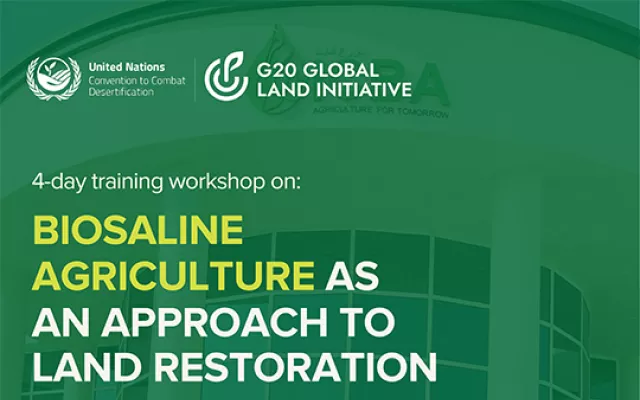Trust builds confidence – a story of Abu Rafee from Jordan
Recent changes in weather patterns, such as prolonged droughts, and extreme temperatures, as well as increased rainfall irregularity, intensity and distribution, have further negatively impacted on the natural and agro-ecosystems in the region and increased the vulnerability of the people dependent on these resources for their livelihood. As the populations and economies of the region grow, the demand for food will increase and the water scarcity will worsen, resulting in further competition between the industrial, agricultural and domestic sectors.
The past decades have seen an increasing number of farmers abandon their lands or face very low productivity, and this is causing dire social and economic consequences necessitating the development of alternative, more productive, and sustainable farming systems appropriate for the socioeconomic and changing environmental conditions of the region.
In response to these challenges, ICBA along with local partners launched the Adaptation to Climate Change in Marginal Environments (ACCME) project aimed to introduce resilient forage and crop production and management systems that are biologically suitable for use of saline and wastewater, so as to bring back and increase productivity of such degraded and lost lands. Abu Rafee, a farmer from Jordan, shares his story. "Farming is my main source of living, and within my community I am known to be pioneer in acquiring new innovations in agricultural technology. Back in 2010, I received 20 kg of barley from ICBA’s project in Jordan that is conducted in collaboration with the National Center for Agricultural Research and Extension (NCARE). I used these seeds to plant 0.2 ha at the side of my field. I also accepted to irrigate them with treated wastewater from a nearby treatment station, as was recommended by the project experts. I found out that their productivity was excellent and reached 4.5 t/ha of seeds and about 8 t/ha of green matter.
"This encouraged me to acquire more crops from ICBA’s project through NCARE and used my production to widen the area planted with these new crops. Now, I plant Triticale and barley in winter and pearl millet and sorghum in summer across 45 ha of my land. My land is considered marginal and below normal for agriculture production. It has no water source except rain. But with the crops I was provided with and the use of treated wastewater I was able to turn a large area of my land productive throughout most of the year and this provided me with a great profit. I am a pioneer farmer because I believe that 'trust builds confidence'. I trusted ICBA and I am now confident that their management practices are trustful."










